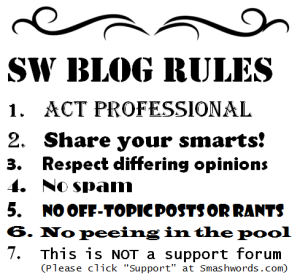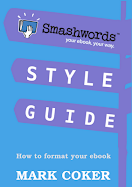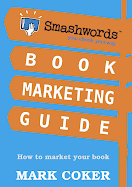Way back in 2009, one of my first posts for Huffington Post was titled, “Why we Need $4.00 Books.”
In that post, I argued that publishers had an opportunity to utilize the then nascent ebook format to expand their global readership by offering low-cost ebooks. I thought the lower price point would appeal to a new group of readers in the same way that the introduction of the mass market paperback format increased readership over the previous hardcover format. I believed low-cost ebooks were inevitable, and if publishers failed to provide them, someone else would.
In the four years since, that someone else was the indie (self-published) author. Publishers have resisted dramatic price drops for fear of cannibalizing existing print and ebook sales. Partially thanks to low prices, but also because of increased quality and professionalism, indie authors are now capturing an ever-increasing percentage of the ebook market, and an ever-increasing percentage of slots in all bestseller lists.
Enter ebook subscriptions such as Oyster and Scribd, where consumers pay under $10.00 per month to read an unlimited number of books.
What happens now to our notion of the value of the book? If publishers were terrified four years ago by the prospect of low-cost ebooks, and terrified the same year when Amazon priced their ebooks below cost at $9.99, should they be terrified now of ebook subscription services?
No. If publishers refuse to support these new subscription models, they'll continue to lose marketshare to those who do.
Of the big five New York Publishers, only HarperCollins has embraced the subscription services, yet it isn’t supplying its entire catalog. Meanwhile, a large number of large independent publishers such as Sourcebooks and Workman have entered into agreements. Smashwords announced an agreement with Oyster last month. As I mentioned in part one of this two-part series, Smashwords today is midway through the process of shipping over 200,000 ebooks to Oyster, including over 20,000 books priced at FREE.
If these new subscription services are successful at attracting millions of readers, and if they can build viable, profitable businesses, what would that mean for the value of books? The answer is more complex than we might at first think.
A fascinating characteristic of these services is that once a subscriber is enrolled, the service provides a virtually frictionless ebook consumption experience. See a book you want to read? Start reading now with a click, without the hassle of clicking a buy button, or entering your credit card information, or taking a financial risk on an unknown author or an unknown book. Click and read, and if you don’t like the book, the reader has no worries and no buyer’s remorse. They’ll just click to the next, all without concern of their end-of-month credit card bill.
Subscription services make books feel essentially free to their subscribers. This means consumer purchase behavior will be liberated from the cognitive calculus every consumer performs at conventional retailers when they weigh their desire for a prospective purchase against the list price of that book. As we found in the last two years in our annual Smashwords survey, and as conforms to general economic theory, lower cost goods generally get consumed more. The human species and psyche evolved to binge in times of plenty and conserve in times of scarcity.
In the 2013 Smashwords survey, we found that free ebooks at Apple get 91 times more downloads than books carrying a price. Across all the retailers in our study, we found that $2.99 and $3.99 ebooks were purchased, on average, about four times more frequently than ebooks priced $7.99 and up.
What happens when every book feels free from the consumer’s perspective?
When this dynamic plays out, I think the publishing industry will gain fascinating insight into what readers really want to read in the frictionless environment of zero-cost book shopping.
Will some Smashwords books already priced at FREE become more popular than their $12.99 competitors from the big publishers? In some cases, it'll happen.
Friction-free subscription ebooks will alter the competitive fight for reader eyeballs. The reader won’t know the difference between a free book and a $12.99 book. Since the retail price is almost irrelevant to the reader, the authors and publishers listed in these subscription services can’t compete on price. Instead, it’ll be more about the book.
I think the six most dominant consumption drivers will be as follows:
- Word of mouth – Are my peers and friends recommending the book to me? Does it have super-fabulous “WOW” reviews from other readers?
- Cover image – The cover image is the first impression a book makes on a prospective reader. Does it capture the reader’s eye and make them want to click and read?
- Book title and description – Does the title and description amplify the desirability established by the cover? Do they promise the reader the experience they seek?
- Author brand – Much to the chagrin of publishers, the publisher’s brand on a book’s spine has never meant much to readers. The author brand is what drives readers more than anything. If the reader trusts the author to give them a great read, then that author will get more readers. Author brand will probably give big publishers some early advantage in the ebook reading game with subscription services because publishers still control the biggest name authors, and because indies aren’t able to underprice in the subscription sandbox. This edge will erode over time as indie authors continue building massive fan bases with low prices at conventional retailers, and as more big name authors migrate to indie publishing (if ebook subscription services become a large an important channel for reaching readers, and big publishers refuse to make their books available to these services, it will accelerate the defection of big name authors to self publishing).
- Subscription service merchandising – The subscription services, like ebook retailers, operate reading platforms that house a massive collections of books. Like ebook retailers, the subscription services will merchandise and promote certain books above others to their subscribers. They’ll seek to recommend books that will please their subscribers. A great recommendation will make the subscriber happy, increase subscriber loyalty, decrease subscriber churn, and make the subscriber more likely to heed future recommendations from the service. A poor recommendation will have the opposite effect – loss of trust and loss of subscribers. This means subscription services will be incentivized to recommend high-quality books. This means high-quality, low-cost ebooks from indie authors are likely to have a merchandising advantage over traditionally published books of equal quality but higher cost (once we complete our initial deliveries to Oyster, we’ll supply them a ranked list of Smashwords bestsellers to assist their merchandising).
- Author marketing – Indie authors are building captive fanbases on Facebook, Twitter, blogs and on their private mailing lists. Authors have the power to direct their fans to stores. Will authors promote these subscription services with the same – or more – gusto than they promote their conventional ebook retailer outlets? Authors who distribute to the subscription services, at least initially, will face less competition for readers because they’re competing against a few hundred thousand books, rather than millions of books at the major retailers.
If these services are successful, the dollars will flow to authors and publishers that maximize access and availability. I suspect that authors and publishers that make their books available to the subscription services will also experience greater sales through conventional retail channels, and if that happens the dollars spent on books will increase further, causing books to become more valuable, and more rewarding to the authors and publishers who produce them.
Indie authors are best positioned to thrive in this new world of ebook retailing where readers demand high-quality, low cost, high-availability books.











%20(1).png)












8 comments:
Interesting thoughts. Did you know that our public libraries here in the U.S. began as kind of a subscription-based service? Benjamin Franklin started it with his "social library." People paid a monthly fee (either in membership or subscription) to read as many books as the library held. Eventually, the government took over, adding libraries to their budget thus making them public. But we still have organizations like Friends of the Library that raise funds. Maybe Overdrive will go away and Oyster's model will be taken up by libraries? Or maybe I'm just reaching? :)
I think this is a great idea, and I'm glad to see Smashwords supporting it.
I hadn't considered the idea that readers wouldn't be seeing the price. That's a new and interesting way to think of it.
Lots of questions:
Right now you say you've got 200,000 books heading their way, do you see this number increasing soon? How are books chosen for those delivery batches? And how long will it take for a book to appear live for an Oyster reader?
Do you know of any sites that are trying to get a jump on promoting books to Oyster subscribers? It'll be interesting to see how authors promote for this new platform.
Maximizing access. Great point, Mark.
I'm with amykeely, and glad Smashwords is supporting subscription-based services.
If I subscribe, am I limited to 2 weeks to borrow the book or can I have it till done? I have downloaded rental books before and had a 2 week limit. I can't read a book in 2 weeks time.
Jane, with these subscription services, you can read as much as as little as you want, and you can read at your speed.
I'm leery. I still don't see an explanation of why authors would make more. I suppose the average person in the US, say, spends less than $10 a month on average on books. Is that average person going to suddenly subscribe to Oyster? I don't see why. Are the people who spend more than $10/month on books going to subscribe? Of course. Given this, how will authors make more money with subscriptions? Or, to put it a bit more directly, how many authors make a living selling books to libraries?
Hi C.E., with these subscription services, authors are royalties when the readers cross a certain threshold for free sampling, which in the case of Oyster is 10%. The more your books are read on these subscription services, the more the author earns. Of course, if every customer consumes so many books that it costs the subscription service more than $10, then they'll lose money on that customer for the month. These services are betting that most readers, on average, will read in moderation. They might lose money on some subscribers on some months but make it up in other months. If most readers read in moderation, the service will make money, the author will benefit from the sales, and the reader will benefit by being able to enjoy friction-free reading.
I use Oyster and I love it. Read constantly. Last year I spent over $2,500 on books with b&n so this was a blessing. Still buy the odd book that isn't on the site, but I have been thrilled with it overall.
Post a Comment